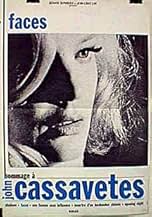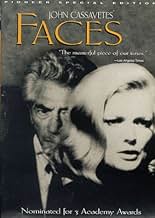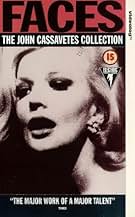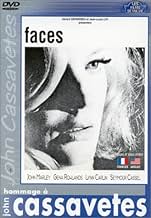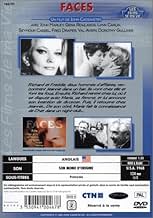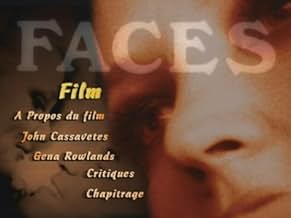When I began watching Faces, I realized that I never knew just when the present scene was going to end. I then realized that I wished that it would last forever. I found myself so engrossed in the scene that I was fascinated with it by itself. Then the next scene began, and the next scene, and within each one, there is a whole single movie with characters and a story arch. Faces is a film that does not allow any given scene to simply be a communication of plot information. Cassavetes created an entire universe for his actors in every scene. Each scene is a million years of passion spliced together, each demonstrating brazenly his brilliant recognition of human exchange and in conversation and conflict what is exchanged and what is left to be desired.
The film has moments of great pain because miniature struggles are so real and they tend to be vocalizations of a person's deeper fears in social interactions and in the structure of life. The film has scenes of furious drama because characters will experience blind unleashing of their ids as middle-aged people. Faces also delivers highly during moments of happiness and fun because, the situation's comfort level gracefully allowing, the characters will show the fieriest, grandiose, extroverted parts of themselves.
The movie's message, ironically, is not about the inner self and the unleashing of it but about the naiveté with which people carry out their normal married lives and don't care to face their flaws and problems and, though they gradually strip their personalities down bare throughout interactions, they continue not knowing themselves or each other. Faces is now among my favorite films of all time and places John Cassavetes on a pedestal as an idol of mine. The movie is a supreme demonstration of powerhouse acting, wherein each performance can be cherished by the performer with a feeling of ownership. There is a bit of real actor in each character played, and that can be seen in each and every powerhouse scene in a row.


